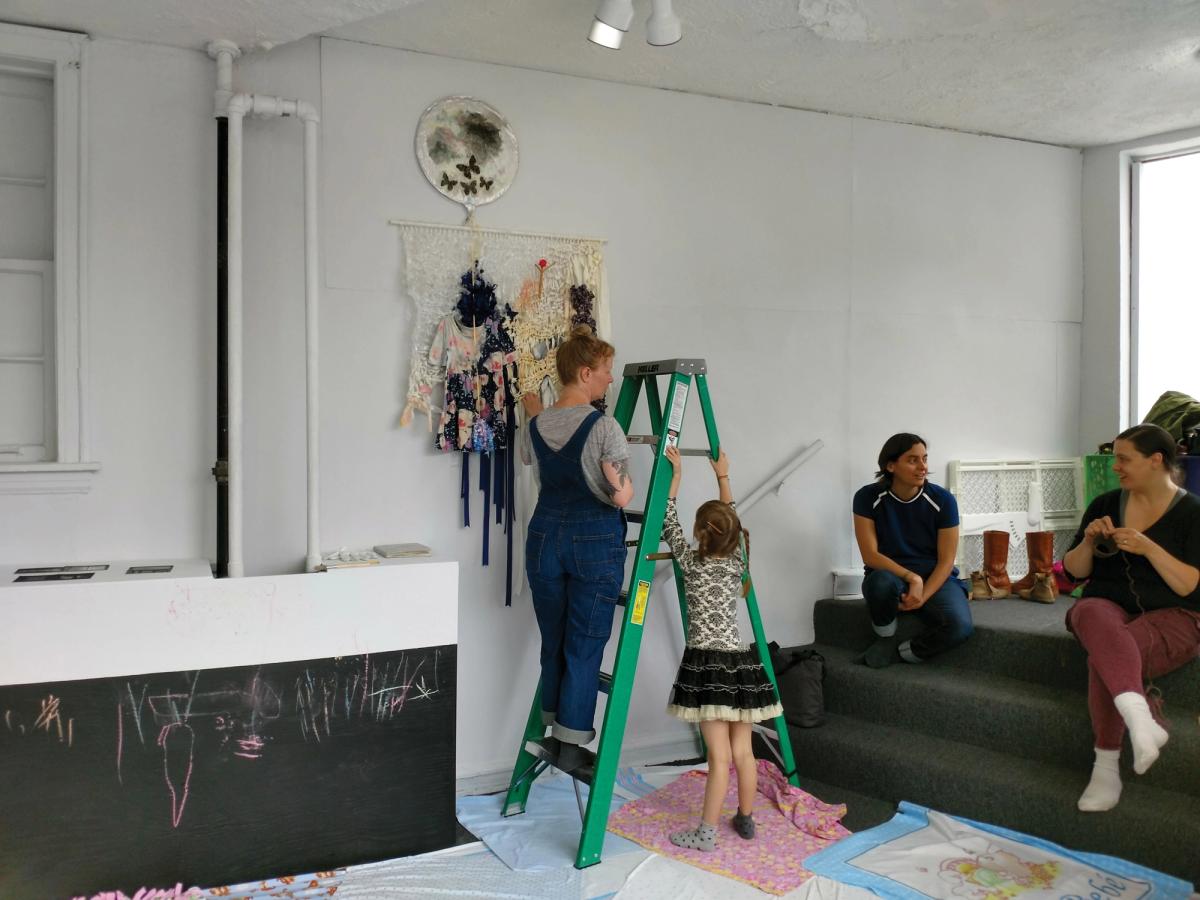When the Chicago artists Angela Lopez and Sara Holwerda became new mothers, they quickly realised that they had to change how they engaged with their work and their art community. Studio time became limited, as did opportunities to network at exhibition openings, which often occur during at children’s bedtimes. Determined to continue nurturing their creative careers, in 2016 they began Extended Practice, a project to increase the visibility of artist-mothers and to help address their needs, from child-care to securing shows of their work.
“Being a mother has an unavoidable influence, on some level, on one’s art,” Lopez says. “A lot of artists need to figure out if they can even work with their child present. It’s constant problem-solving.”
Backed by a city grant, Extended Practice has collaborated with galleries to organise discussions for new mothers, child-friendly performances by artist-mothers and one screening of animations by international artist-mothers. The events, where hired babysitters and healthy snacks are often provided, allows mothers to connect and share advice. They also highlight challenges “that speak to systemic problems women face as new moms,” says Holwerda, “like child-care accessibility, free preschool, maternal health care and the viability of the artist career.”
On 12 October, an exhibition curated by Extended Practice will open at Chicago’s Hyde Park Art Center. Titled Extended Self: Transformations and Connections, it will highlight artists in various stages of parenting, like Noelle Garcia, who turned to bead weaving because she could easily transport beads in a diaper bag, and Jessica Labatte, whose photographic series of light and shadow was shaped by the motions of her first child in her belly. Not everything on view will have a maternal theme, however. “This is not just overtly about motherhood,” Lopez emphasises. “This is a show of great artists.”
Accompanying the art will be a resource library for artist-mothers offering information on groups similar to Extended Practice, like Artist Parent Index, an online database of artists making work about parenting. Visitors can also browse a collection of zines related to motherhood that Lopez and Holwerda are assembling through donations.
Like their other events, the exhibition will be family-friendly. The library will have soft flooring, toys and chalkboard walls. Comfortable chairs will allow nursing mothers to view the art while seated. “It’s a form of inclusion,” Holwerda says of the space’s design. “We hope to show what you can do as an artist, a curator and also an institution, with a little creativity, to pay attention to the needs of more people.”
Extended Practice’s focus is largely local, but its network is gradually growing beyond Chicago: Anyone interested in organising a meetup for artist-mothers in any city can request a signal boost and a conversation guide. Lopez and Holwerda also invite artists-mothers around the world to take over Extended Practice’s Instagram to document how they manage their time and resources; so far participants have been based in cities from Los Angeles to Copenhagen.
“We’re trying to give insight into how people balance parenting and a creative practice,” Lopez says.


